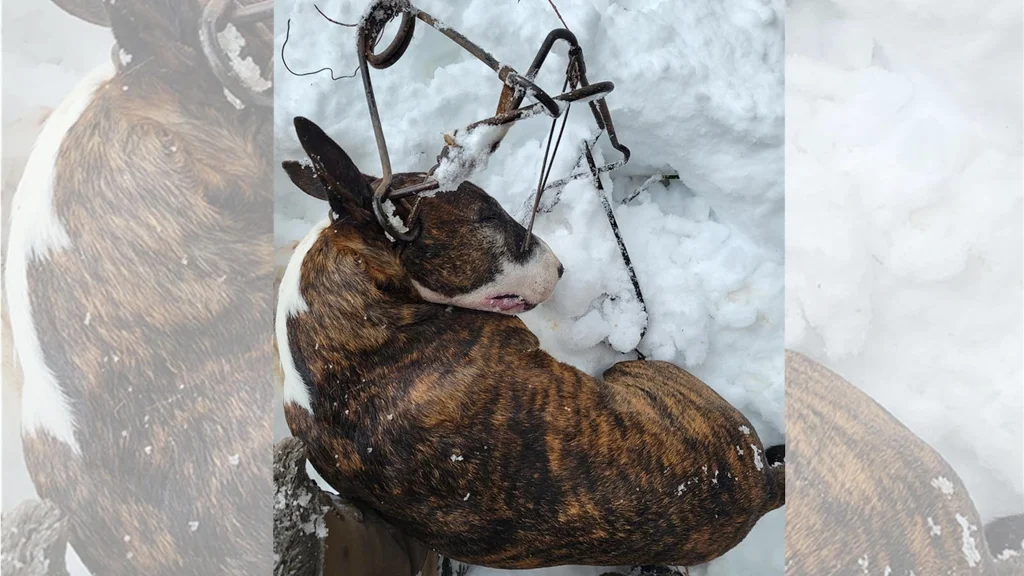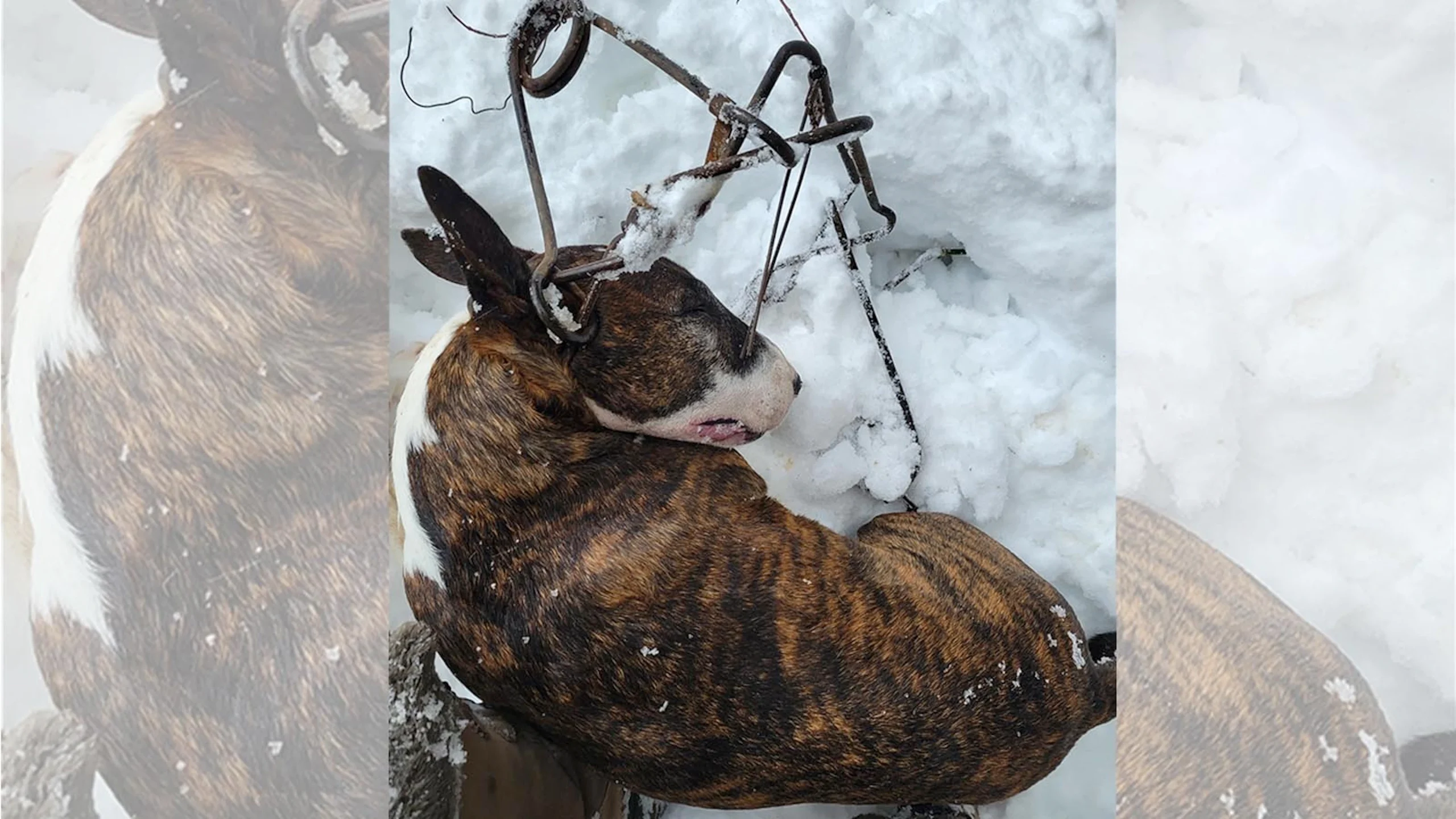Becky Barber’s ordinary day out with her English bull terriers took a devastating turn when she found herself trying to free her beloved dog, Jester, from a beaver trap that tragically took his life.
Barber, a resident of Afton, shared a special bond with Jester, who had been her loyal companion since she adopted him at one year old. They even shared the same birthday on October 20.
The incident occurred on a road near Swift Creek drainage, a popular spot for locals to let their dogs roam off-leash. However, Jester got caught in a beaver trap placed near the road, despite Barber’s desperate attempts to save him.
The trap, designed to kill animals instantly, instead left Jester suffering before he passed away. It was later discovered that the trap had been illegally set, leading to a citation from the Wyoming Game and Fish Department.

Barber, deeply affected by Jester’s death, has since called for reforms in trapping regulations to prevent similar tragedies from happening in the future. She believes in setting limits and mandatory setbacks from public areas to ensure the safety of pets and wildlife.
As her story spread on social media, Barber recounted the heartbreaking experience of losing Jester and the challenges she faced in trying to save him.
The emotional toll of the incident not only affected her but also impacted her family and even Jester’s canine companion, Kaia, who had to be given sedatives to cope with the loss.

In response to calls for change, organizations like Wyoming Untrapped advocate for trapping regulation reforms, including mandatory setback distances and warning signs near traps. However, concerns remain about the effectiveness of such measures in curbing unethical trapping practices.
While the debate over trapping regulations continues, one thing remains clear: pet owners bear the ultimate responsibility for the safety of their animals.
A recent court ruling underscored this point, emphasizing that dogs are considered property under Wyoming law, placing the onus on owners to ensure their well-being.
Despite the challenges and heartache faced by Barber and other pet owners, the hope for a safer and more compassionate approach to wildlife management drives the push for reform in trapping practices. Together, through collaboration and understanding, there is a chance to protect both animals and the tradition of trapping in Wyoming for generations to come.

